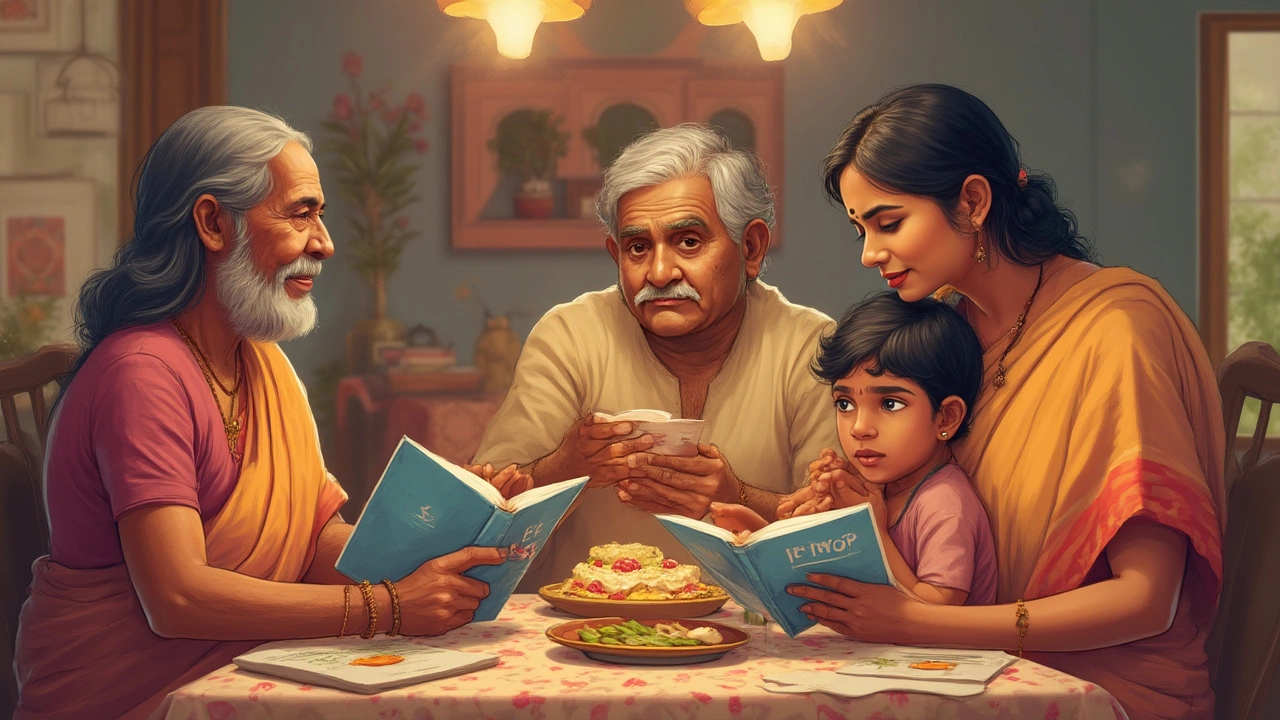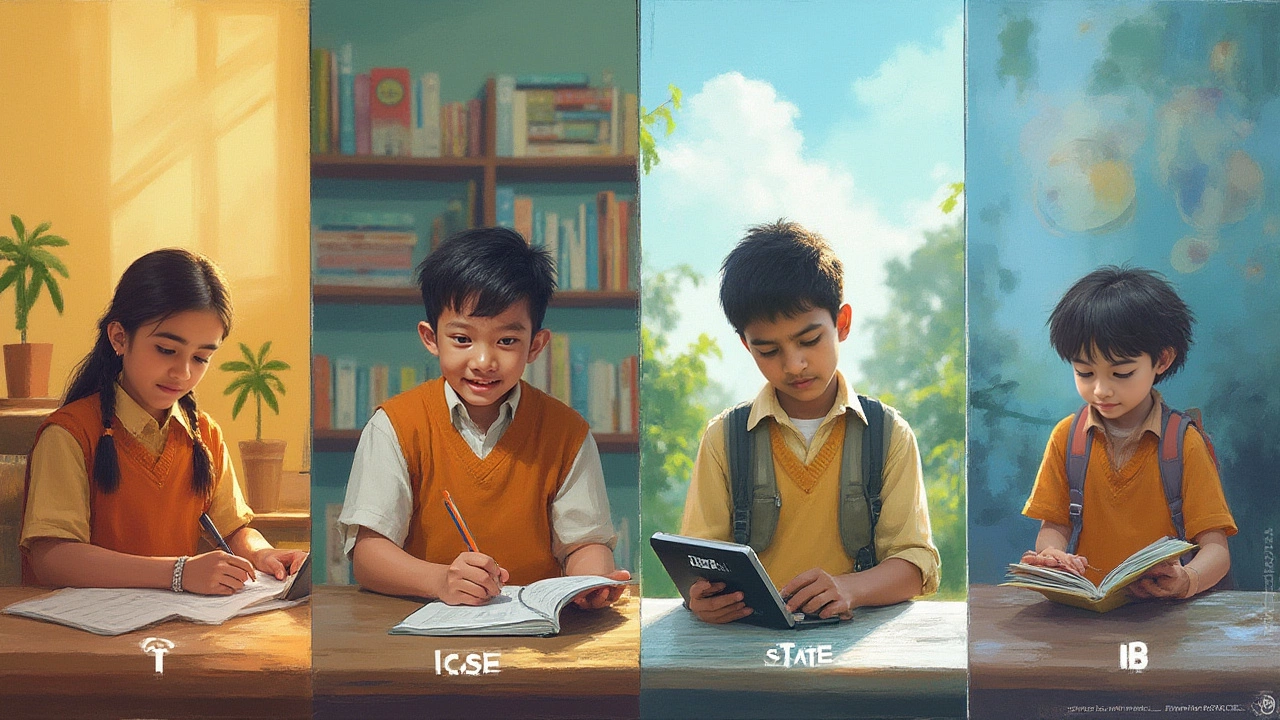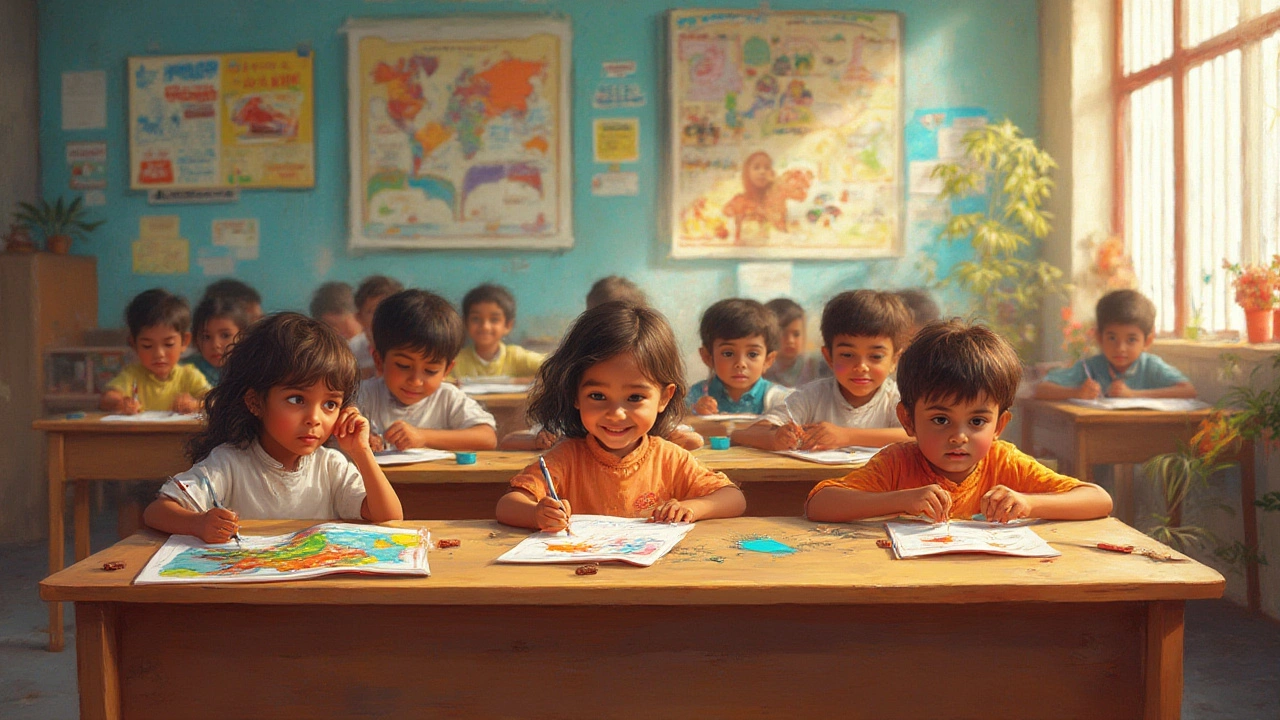Picture this: it’s midnight, and you’re scrolling forums, torn between IB, CBSE, ICSE, or even Cambridge, trying to figure out which is best for your kid. You’re not alone. In India and worldwide, parents obsess over choosing the perfect syllabus, hoping it’ll give their children the smartest boost in life. But how much does picking the “right” one really matter? Does it decide the future, or is it just another label?
Breaking Down Popular School Syllabuses: What Makes Each Unique?
Let’s start with the heavyweights most kids face in India: CBSE, ICSE, IB, and Cambridge (IGCSE). Each comes with its own teaching style, priorities, and reputation. But which one really fits your child?
CBSE, or the Central Board of Secondary Education, isn’t just the most-adopted syllabus in India; it’s practically everywhere. It’s designed to keep things standard across the country, so families who might need to move don’t get stuck in educational limbo. The curriculum is structured, mostly focused on Science and Math, and often aligns closely with national competitive exams like the JEE or NEET. The material is relatively straightforward—there aren’t a ton of creative projects, but the fundamentals are strong, which has its fans. One thing that stands out: CBSE books, especially NCERTs, are crisp, sometimes a little dry, but widely used by exam toppers in India.
ICSE, or Indian Certificate of Secondary Education, loves bringing in a broader, more balanced approach. English skills are in the spotlight here, with lots of essays, literature, and in-depth study. You’ll find ICSE packs in more creative assignments, more electives, and a certain flair that often helps with language proficiency. Math and Science are well-covered too, but the board is considered a bit tougher and more detailed in how it treats subjects. It’s the board many parents choose if they want their kids to be ace debaters—maybe future journalists or writers.
IB, or International Baccalaureate, comes swinging in as the most globally-minded curriculum. Instead of rote memorization, the focus is inquiry-based learning—kids ask the WHY, not just the WHAT. Classrooms can be a bit untraditional here. Expect group projects, a ton of self-reflection, and more presentations than you’d expect in a typical Indian classroom. The Theory of Knowledge element famously gets students examining how they know what they know—a real test for young philosophers! IB schools offer expat kids a smoother transition and give students a leg up if they plan to study abroad, especially in Europe or North America.
Cambridge or IGCSE falls somewhere between IB and Indian boards. It follows the British teaching model but is more exam-focused than IB. Students get to pick from a basket of subjects, and the syllabus can feel a bit light compared to the deep dives in ICSE, but it’s globally respected, especially for students hoping to move countries later on.
Here’s an interesting tidbit: A 2023 survey by Education World found that over 60% of parents in top Indian metros wrestle with switching between boards at least once in their child’s schooling. That’s how hard this choice can get.

How Does Syllabus Shape Learning—and Life?
The syllabus isn’t just about what’s in textbooks. It colors a child’s daily experience, habits, skills, and, sometimes, even their confidence. For example, CBSE kids often show quick test-taking abilities and solid technical concepts. Many who opt for engineering or medicine report that their schoolboard’s exam style made a massive difference when prepping for entrance tests later.
ICSE kids, on the other hand, frequently develop a knack for writing and reasoning—skills that crop up in everything from law school to journalism. Plenty of parents report that children under this board find English communication easier in workplaces and interviews down the line. But here’s a catch: ICSE’s syllabus can be heavy, and sometimes the workload is just overwhelming. This board is not always the best match for a child who needs extra time or prefers alternative learning.
IB and Cambridge throw memorization out the window and demand more exploration. Classrooms often let students design their own experiments, present on topics they’re passionate about, or write research-style essays. This pays off for kids who are naturally curious or plan to pursue creative or research-driven careers. On the flip side, students who struggle with open-ended assignments might feel lost or less confident, especially if they don’t have strong support at home.
What about special needs or gifted kids? Some boards like IB or Cambridge can be more flexible with alternative assessments, which helps. CBSE, being vast and standardized, can sometimes feel less personal, though urban schools do their best now to support students with extra needs. Not all boards have “remedial” provisions, but urban schools often incorporate shadow teachers, counselors, and adjustment in test-taking for those who need it.
Let’s dig into a practical example: Meera, a student in Delhi, was excelling in ICSE until Grade 8, but started falling behind in complex Math. Her parents switched her to CBSE, aiming for a more focused and less detail-heavy approach in Math and Science. The change paid off—she got comfortable with numbers and later cleared the NEET exam. There’s no one-size-fits-all. Some transitions are life-changing, others can be difficult.
Another story comes from Mumbai: Arjun, an IB student, hated memorizing science facts. When his school encouraged him to create his own water filtration model, he found a passion that led him to study Environmental Engineering abroad. His success was about fit, not board prestige. The right syllabus can put a child in their “zone.”
One surprising fact? In 2022, more than 30% of international school graduates in India applied to universities in the US or UK, compared to under 10% of those from Indian boards. The pathway you pick influences not just exams, but the world your child feels ready to enter.

Smart Tips for Choosing the Right Syllabus for Your Child
So, how do you cut through the noise and pick what’s best? Here’s what parents and educators with decades of experience recommend—straight, practical, and honest:
- best syllabus for kids: Don’t assume the most popular syllabus equals the best for your child. Each curriculum shapes thinking in a unique way.
- Look at your child’s strengths and personality. Do they thrive on structure? CBSE could be a great fit. Love languages and analysis? ICSE might suit them. Prefer projects, exploration, and self-driven learning? IB or Cambridge can offer that freedom.
- Think long-term. Is your family likely to move cities or countries? Standardized boards such as CBSE simplify shifting. Planning to settle abroad? International boards can ease university admissions and adjust to foreign teaching styles.
- Talk to teachers and current students. Forget glossy brochures—ask about tough exams, workloads, and if students actually enjoy learning.
- Check school quality. The syllabus can only get you so far. A supportive principal, well-trained teachers, and healthy peer environments matter more than the title on the textbook.
- Consider the cost. IB and Cambridge schools are often pricier than CBSE and ICSE. Factor in exam fees, books, and activity extras.
- If your child has learning difficulties or needs extra help, look for schools—not just boards—that offer strong special needs support.
- Don’t rush to board-hop unless your child is genuinely struggling. Switching is disruptive, especially in Grade 9 and above, because syllabuses don’t always line up.
- Make space for trial and error. Sometimes a child surprises you—they may love what you least expect. Stay involved, attend open houses, and listen to your child’s feedback.
- Follow the research on outcomes. For instance, a 2024 study by the Indian Institute of Education revealed that CBSE students achieved higher average scores in engineering entrance exams, while ICSE kids scored better in English language contests.
Remember, the perfect syllabus isn’t just about reputation or trends. It’s about helping your child find their groove—the confidence to learn, ask questions, and bounce back from a setback. Trust your gut, but weigh it against real feedback from those living in the system every day.
One last thing: No syllabus is a golden ticket. A caring home, a curious mind, supportive teachers, and maybe the odd late-night rant about “too much homework” combine to make real learning happen. The rest? Pick what suits your child’s fire and your family’s plans. The best syllabus is the one that sparks your kid’s world.
